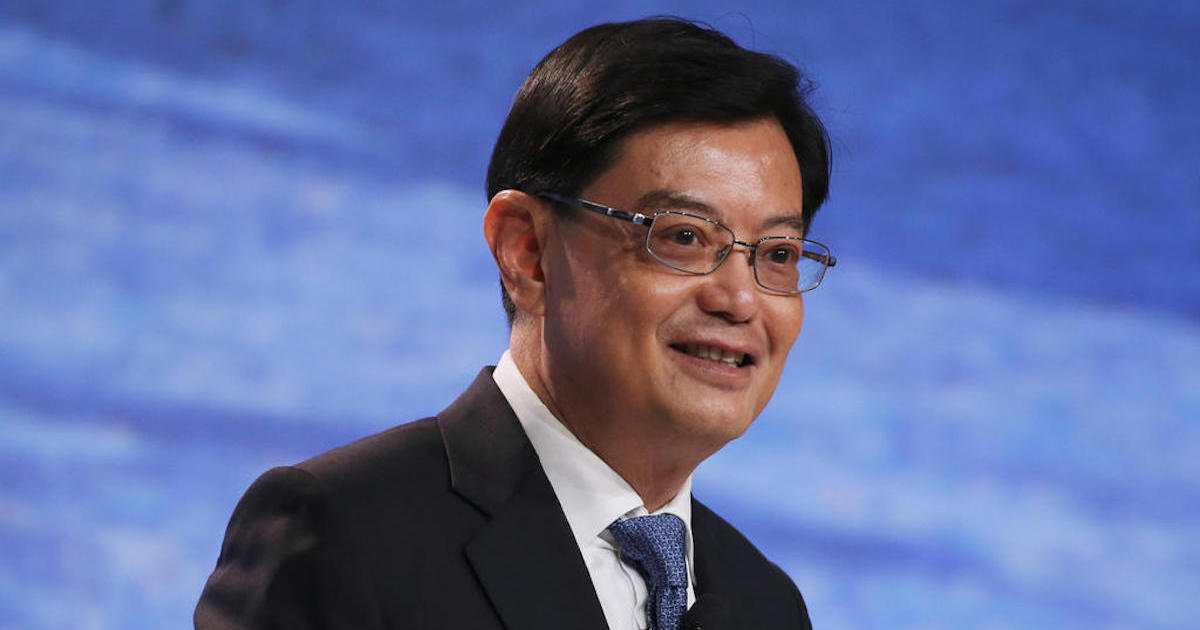Deputy Prime Minister and Coordinating Minister for Economic Policies Heng Swee Keat gave the opening address at the Point Zero Forum in Zurich, Switzerland today (June 22).
The forum is an exclusive gathering of global leaders, founders and investors, and is jointly organised by Singapore and Switzerland. Notable speakers at the event include regulators, startup leaders, and many more.
During his opening speech, DPM Heng noted several important trends in the fintech and crypto space.
A new wave of tech is here
While DPM Heng noted that the new wave of technology — in the form of Web3.0, blockchain, non-fungible tokens (NFTs) and decentralised autonomous organisations (DAOs) — is here, it is also the case in which the previous wave of tech has not yet run its course.
“Artificial intelligence (AI), Internet of Technology (IOT) and big data have become more prevalent, but there are still untapped opportunities. A new wave of technology is emerging in the form of Web 3.0, blockchain, NFT, and DAO — these technologies are not as well understood or defined, but they could potentially be game changing,” he said.
DPM Heng also expressed his hope that the Point Zero Forum could be a place where both the public and private sector jointly seeks to strengthen the circulation of innovation, broaden opportunities between Europe and Asia, and use these emerging technologies for good.
He suggested that the regulatory approach that Singapore has taken is likely going to be adapted to these new technologies, citing successes with the previous tech waves of AI and machine learning.
Each new tech wave is often greeted with a mix of optimism and skepticism. What we have gradually come to accept today, was not as broadly embraced back then, but we did not let tech evolve by chance.
Instead, the tech community and regulators actively shaped technology to bring out its best potential, while mitigating the risks. The same approach of encouraging the upsides while minimising the downsides applies to Web3.0, which creates many possibilities.
– DPM Heng Swee Keat
Addressing the recent volatility of crypto prices and high profile failure of the Terra UST-Luna project, DPM Heng also argued that the value of blockchain and digital assets lies aside from crypto assets, and suggests that blockchain tech can be used for cross-border transactions.
We can also explore other use cases to improve efficiencies, accessibility, and affordability.
The fintech community faces challenges, but also has many opportunities
One of the main points that DPM Heng addressed was on the state of the fintech industry.
He noted that access to capital has become more difficult with rising interest rates and falling valuations, as well as a general increase in scepticism following the failure of several high profile crypto companies.
There is also geopolitical instability and macroeconomic challenges, all of which pose significant issues to the development of the fintech industry.
However, DPM Heng also considers the growth of the fintech industry so far to be strong, with a record of over US$210 billion being invested into fintech last year.

Fintech has improved counteless lives, including bridging digital finance to millions who were otherwise unbanked. Fintech is driving better outcomes — disrupting existing business models for the better, creating good jobs, and steering us towards a greener future.
– DPM Heng Swee Keat
At the same time, he cautioned that there are also significant issues that the fintech industry has to deal with, with greenwashing being a prominent issue. Citing the recent move by Morningstar to remove ESG tags from around 20 per cent of their funds, DPM Heng stated that the magnitude of greenwashing is concerning, and called the practice “the bane of global financial systems”.
According to DPM Heng, this also happens to be an area where green fintech can be put to greater use in order to detect greenwashing and raise the quality of green financing over time.
Regulators are not enemies of businesses
DPM Heng also stressed that regulators and businesses share a common goal in using finance and tech to create value and improve lives. As such, there is no need for regulators and businesses to take an adversarial approach.
Instead, DPM Heng advocates for a partnership between the private and public sector, in order to encourage and promote innovation while managing the downside risks. As an example, DPM Heng cited the importance of the private sector and government’s common interest in getting rid of greenwashing.
“Singapore remains keen to work with blockchain and digital asset players. We are committed to partner innovative and responsible players to grow the Web3.0 ecosystem and community in Singapore,” he said.
“We will facilitate live experiments through regulatory sandboxes, including testing the feasibility of DeFi and asset tokenisation. We hope to do pioneering work in these fields, in a way that will benefit lives and our regions. We welcome you to be part of this journey, as we strengthen the partnership between regulator and industry.”
Featured Image Credit: Reuters








